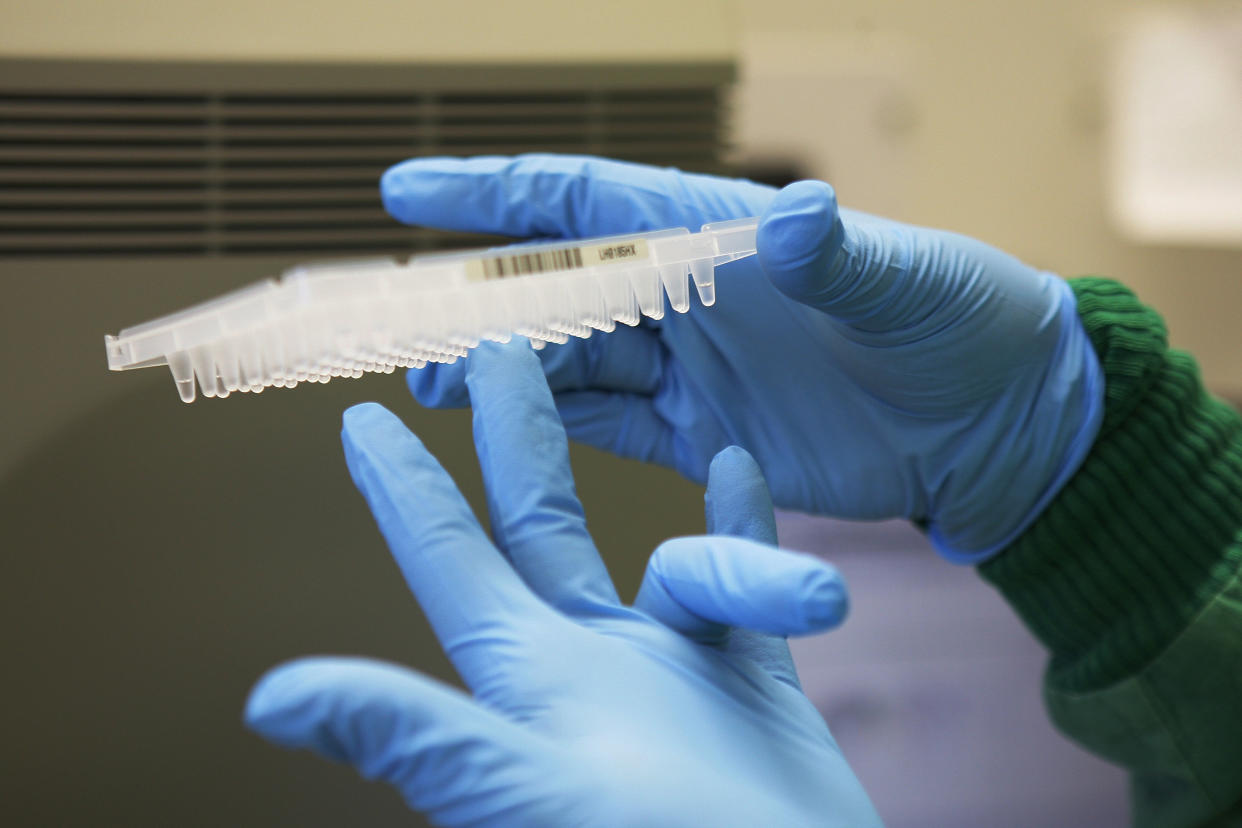Rapid PCR Technique, Used In Genome Sequencing, Could Bring Quick Diagnoses

By Cynthia Graber
(Click here for the original article and podcast)
PCR—the polymerase chain reaction—is a crucial tool. The DNA amplification technique is used in genome sequencing, forensics and the diagnosis of various diseases.
To give researchers more genetic material to work with, a PCR instrument repeatedly heats and cools an original biological sample. Which gives enzymes a chance to replicate the DNA millions of times so it can be more easily analyzed.
Such sequence amplification would be a boon to diagnosis in a doctor’s office—especially when an infectious disease is spreading rapidly. Unfortunately, genetic tests usually take a day or two to complete. But researchers at the Lawrence Livermore National Laboratory aimed to speed up the process.
First they created an extremely fast thermal cycle, in which a sample experiences 45 degrees Celsius temperature changes per second. Then they searched for DNA amplification enzymes that could operate at that thermal cycling speed. And they found two that worked without any tweaking. The technique accomplishes a billion-fold amplification in well under three minutes. The work is in the journalAnalyst. [E. K. Wheeler et al,Under-three minute PCR: Probing the limits of fast amplification]
The system could make it possible to identify food contamination virtually instantly. Or an infection before you even finish coughing.
This article originally appeared on HuffPost.

